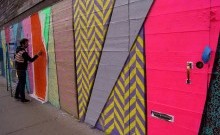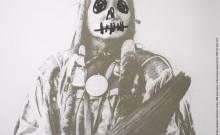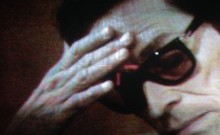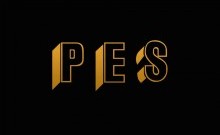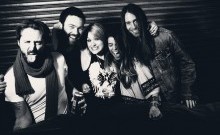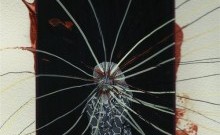Raw Essence
Born in Belo Horizonte, Brazil, and a drummer since the age of 10, Jean Dolabella has gained a reputation as versatile and sensitive as well as become an important musician in the international music scene.
As a former drummer for Sepultura; one of the most important thrash metal bands in the world, Dolabella has also performed with major artists such as Mike Patton, Paul Di’Anno, Lenine and Milton Nascimento, among others. His first band, Udora (former Diesel) toured heavily in the US and Brazil, standing out in the independent music scene. In 2001, Diesel played on the main stage at Rock in Rio 3 alongside Red Hot Chili Peppers, consolidating their fame.
Dolabella graduated from the Los Angeles Music Academy in 2004. At LAMA he studied with Michael Shapiro, Ralph Humphrey, Joe Porcaro, Dave Beyer and other big names. Still in Los Angeles, he played and recorded with various artists, including Kile Riabko in an album produced by Matt Wallace (Faith No More and Maroon 5). The album included performances by Greg Bissonette and Michael Bland (Prince). While still with UDORA, he also worked with producer Thom Russo (Audioslave, System of a Down and Michael Jackson) and shared the stage with Jerry Cantrell (Alice in Chains).
He joined Sepultura in 2006. No stranger to collaborating, Dolabella, Paul Di’Anno (Iron Maiden), Canisso (Raimundos) and Marcão (Charlie Brown Jr) came together in 2008 for a classic rock tour in Brazil and Latin America. They called their project Rockfellas. That same year he recorded "A-Lex", his first album with Sepultura.
Three years later, in 2011, also during Rock in Rio, then at its fourth edition, that Dolabella shared the stage with the French percussion group Tambour Du Bronx and Mike Patton. In the same year, Dolabella recorded his last album with the band. “Kairos” was produced by Roy Z (Rob Halford, Bruce Dickinson) and was considered the best Sepultura album since “Roots”. The title song “Kairos” was the number one hit in rock radio stations across the U.S. for several weeks, and has made it to the top 100 Billboard.
Dolabella now owns a studio named “Family Mob”, in São Paulo, Brazil. He is currently in multiple projects and I met him right after John Silva (the former manager of Nirvana, now with Foo Fighters and Queens of the Stone Age) left. We had a very pleasant chat.
Marco Piza: Being in a huge band and touring the world playing rock’n roll is the biggest dream for most musicians. Why did you decide to leave?
Jean Dolabella: I had a great time with Sepultura, it’s part of my life, my history, but at some point I felt that it was the moment to try something new. I wanted to invest my time in a way that would provide me with more freedom for my creative expression, more space for my own music.
MP: You spent the most part of your life on stage. Do you have plans to join a new band or have you changed your role in the music industry?
JD: Both. Of course the studio and its projects need me in a different role, but I never stopped playing. I have this project, Indireto, since 2008, and now I just started a new band named “Ego-Kill-Talent”, which says a lot about my thoughts regarding showbiz.
MP: Tell us something about them.
JD: Indireto is me and Augusto Nogueira, a super talented Brazilian guitar player. It’s our therapy, our escape; it’s where we can do anything, experiment, cross barriers. Every Indireto gig is different, even if we play the same songs. And it allows us to develop the academic side – remember I’m also a drum teacher. Once we used it to do what we call as “workshow”, a kind of workshop and show at the same time. It’s spontaneous, not programmed, exactly the opposite from a regular band, which is also good but is always on the same mindset.
MP: And this new band, Ego-Kill-Talent, I like the name…
JD: It’s self-explainatory. (laughing a lot)
But, seriously, the band gives me the opportunity to express a hundred percent of myself, I write most of the songs and we’re recording a lot of stuff. The band is two other guys - both guitar players - and me. One of them is Estevam Romera, my partner in the studio, and the other one is Theo Van Der Loo, who promotes some major music festivals in Brazil, such as Maquinária and SWU. We’re planning to search for a bass player and a lead singer in the near future. At Ego (-Kill-Talent), I won’t be the frontman but I’ll be in the frontline of the band.
MP: So, let’s talk about Family Mob. How do you expect to conciliate the studio with so many projects and what are your plans for the future?
JD: The studio is in the center of everything, it’s where I can apply my knowledge and learn a lot at the same time. I can practice my skills as a producer, which is something that I always loved to do. And after many years touring, I saw tons of studios around the world and noticed that no one has this kind of vibe that we put here – a place to rehearse, record but also a space to hang out with friends, family and to host other cool events and activities.
MP: In fact, the first impression I had of the studio is that it’s amazing.
JD: Thanks. We built it like that because it was the kind of studio we dreamed to have for ourselves: high-end equipment but also cool interior design. Instead of optimizing the space with more rooms, we decided to have a lounge, a bar and to style it as a 50’s of 60’s old hotel. And the response is being awesome; we already hosted parties, press-conferences and even strategic workshops for brands like Viacom, MTV, Converse and Deezer.
MP: So, you’re doing things beyond music.
JD: Yes, but always related to music. I'm currently producing and recording soundtracks for Brazilian and international movies. Recently, Warner Bros asked me to produce a song for Scooby Doo, I just loved to do it.
MP: I noticed that you have lots of vintage equipment, like tape recorders and stuff like that.
JD: Actually, we have equipment to record in both analog and digital formats. But yes, we’re addicted to the vintage concept. It’s something trendy right now, especially after Dave Grohl’s speech at 2012 Grammys, when Foo Fighters received 5 awards for the Wasting Light album – which was recorded using analog resources – and he reminded the crowd of the importance of music’s “human element’. Of course Dave is an inspiration, but, regardless, this is how I see things since the beginning of my career.
MP: And what’s your opinion about that?
JD: I think that computers are good, but it must be just a tool, not the central element of the process. As a musician, I can say that when you record using tape you just need to give it your best, the take has to be really good, because you know that it won’t be edited, it just can’t be. And the beauty of the process is that doing it this way you won’t be perfect. And to not be perfect is just awesome, because it’s natural, and because this is the essence of music, this is the essence of rock’n roll.
I know, that, in a certain way, this is now something utopic, but on the other hand, bands who choose this path have a real chance to establish a strong connection with their audiences.
It’s not a matter of being better or worse, it’s about being more real. Rock’n roll must have a purpose, and considering that it’s usually born from anger, anguish, it must have a ‘dirty’ texture, failures and be a slap on your face.
We just did this to record Ratos de Porão, a Brazilian punk band which is one of the most important in the world. And we recorded a pig as a backing vocal! We could have done this using the computer, but bringing the pig up here to record it… it’s just amazing, d’you know what I mean?
It also worked for Foo Fighters, and before that Dave Grohl experimented it on Nirvana. But, for me, the perfect example is the Ramones. Can you imagine that band overproduced? It’s just impossible.
MP: You’re really passionate, how can I say, about the concept of truth inside the music.
JD: Sure! But not only in music, in art in general. The truth is what defines real artists. And that’s why the studio was built like this, because we want to promote exchanges among different kind of arts like music, paintings, photographs, street art, sculpture and others.
MP: Cool! Thank you very much for your hospitality and I hope to see you soon again.
JD: Why are you in a hurry? Stay a little longer, let's have a beer and listen to some vinyl records! (laughs)









